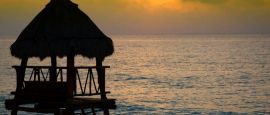Jamaica Health Care and Vaccinations
| Title | Special precautions |
|---|---|
| Diphtheria |
Yes |
| Hepatitis A |
Yes |
| Malaria |
No |
| Rabies |
No** |
| Tetanus |
Yes |
| Typhoid |
Yes |
| Yellow Fever |
No* |
Medical care standards vary dramatically across the country's public and private hospitals. Away from major cities, medical centres are often poorly funded and under-resourced. Health insurance is strongly recommended since medical treatment can be expensive. Major hotels often keep a doctor and dentist on 24-hour call. Cash payment is often required, sometimes in advance.
Mains water in key tourist areas is normally chlorinated and is considered safe to drink. However, elsewhere water quality remains poor and should be avoided. Bottled water is widely available. Make sure food is thoroughly cooked, avoid purchasing food from street vendors and check that dairy products have been pasteurized before consumption.
Do you have any Feedback about this page?
© 2026 Columbus Travel Media Ltd. All rights reserved. No part of this site may be reproduced without our written permission, click here for information on Columbus Content Solutions.








 You know where
You know where
